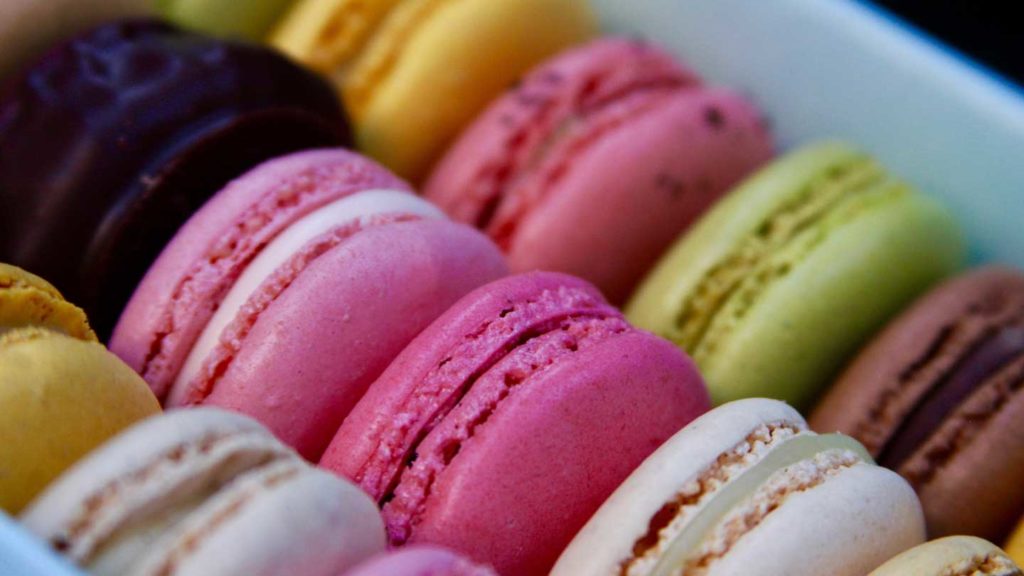Eat well – sleep well
- 7 May 2020
At some point most of us resolve to lose weight and adjust our diet. But before we set out on a new diet with […]

Do you find yourself craving crisps, cake or chocolate when you’re tired, and your waistline expanding after many sleepless nights? Julianna Photopoulos finds out how sleep affects our weight and why improving our sleep could help us have a healthier diet.
For years, researchers have known that short sleepers are more likely to be obese or weigh more.1 2 3 4 After a bad night’s sleep, you’re more likely to put away extra calories the next day5, and eat more of your overall calories at night6 – both of which can result in putting extra weight on. Studies have shown that adults who sleep less than five or six hours a night are at higher risk of being overweight7, while in children it is sleeping less than 10 and a half hours every night at an early age that could lead to obesity later in life.8 9 10
During a 2 week study, those who slept 5 hours ended up having more snacks and gained an average of 1.4 kilos.
And it doesn’t take long, or countless sleepless nights, to gain weight or distort your metabolism. During a two-week study, those who slept five hours a night ended up having more snacks after dinner and gained an average of about 1.4 kilos.11 In another study, participants gained an average of just under 1kg after one week.12 So why does this happen?
Not getting enough sleep triggers changes to hormones that regulate our hunger and appetite.13 14 The hormone leptin, which tells us we’re full, is reduced when we’re sleep-deprived, whilst the ‘hunger hormone’ ghrelin shoots up.15 As a result, we feel hungrier than we really are and end up eating more.16 Another hormone, the stress hormone cortisol, rises after poor sleep and may again increase our appetite.17

We also tend to crave junk food and unhealthy snacks after a sleepless night.18 Our judgement is clouded by the lack of sleep and our brains are unable to make good food choices. So instead of whole grains or green veggies, we’re most likely to be impulsive and give into fat and sugar-laden foods, such as doughnuts.19 And these high-calorie foods make our sleep-deprived brains more susceptible to their enticing smells, so experts advise to avoid passing by your local doughnut shop after sleeplessness!20
This bad eating behaviour – reaching for unhealthy snacks when we haven’t slept much – may come down to the regions of our brain’s ‘reward system’. It seems that these regions are stimulated more by food when we’re sleep-deprived21, and the lack of sleep will lower activity in the brain’s frontal lobe that is involved in decision-making and self-control.22 Particularly, a study found that the activity of the amygdala (where food rewards are processed in the brain) was very strong when sleep-deprived people looked at food images.23 They were also willing to pay more for food, which was linked back to the hypothalamus, a region involved in controlling appetite and food intake.

Disrupting our sleeping pattern – even for one night – has also been found to slow our metabolism the next day.24 Research revealed that the energy used for everyday body tasks like breathing and digestion was reduced by 5-20% in male students, after poor sleep.25 They also had higher blood sugar and hormone levels. On the contrary, another study found that participants getting only five hours of sleep boosted their metabolism and burned an extra 111 calories per day.26 Other studies found no changes at all, hinting that we still have a lot to learn about the complex connections between metabolism and sleep.27
Poor sleep can cause us to accumulate body fat because cells become resistant to insulin, a precursor for weight gain and type 2 diabetes.28 Insulin is a hormone produced by the pancreas that regulates our blood sugar, so when cells become resistant or less responsive to insulin, they don’t absorb glucose.29 This excess sugar remains in our bloodstream and gets stored as fat.
Evidence links 7 or more hours of sleep each night with a 33% higher likelihood of losing weight.
But could sleeping more actually help your diet? Some evidence links seven or more hours of sleep each night with a 33% higher likelihood of losing weight.30 Another study showed that when people who usually sleep less than seven hours a night increase their sleep time, they eat less free sugars (sugars added to foods or that are in sugary foods like juice).31 Specifically, extending their sleep resulted in reduced free sugar intake by an alarming 10.3g32, and they started eating less fat and carbohydrates.33 However, don’t try to catch up on sleep just over the weekend, as that won’t work!34
And although sleep isn’t the only factor that drives weight gain – our health, diet, physical activity, genetics and stress can affect it too35 – there’s compelling evidence: a good night’s sleep is a good prescription for maintaining a healthy weight.
Read Part one: Eat well – sleep well.
Footnotes
1 Waking up to the health benefits of sleep – Royal Society for Public Health (PDF)
2 Short Sleep Duration and Weight Gain– Obesity Society
3 Waking Up to Sleep’s Role in Weight Control – Obesity Prevention Source
4 Insufficient sleep may be adding to your waistline – Science Daily
5 The effect of partial sleep deprivation on Energy Balance – European Journal of Clinical Nutrition
6 Impact of insufficient sleep on total daily energy expenditure, food intake, and weight gain – PNAS
7 Association between Reduced Sleep and Weight Gain in Women – American Journal Epidemiology
8 Early life risk factors for obesity in childhood: cohort study – BMJ
9 Meta-Analysis of Short Sleep Duration and Obesity in Children and Adults – Sleep Research Society
10 Associations of Sleep with Food Cravings, Diet, and Obesity in Adolescence – Nutrients
11 Weekend catch-up can’t counter chronic sleep deprivation – National Institutes of Health
12 Less sleep leads to more eating and more weight gain – University of Colorado
13 Sleep Deprivation Tied to Shifts in Hunger Hormones – Scientific American
14 Short Sleep Duration Is Associated with Reduced Leptin, Elevated Ghrelin, and Increased Body Mass Index – PLOS Medicine
15 Is a lack of sleep making me fat? – How Stuff Works
16 Short Sleep Duration Is Associated with Reduced Leptin, Elevated Ghrelin, and Increased Body Mass Index – PLOS Medicine
17 Sleep and obesity – Current Opinion in Clinical Nutrition and Metabolic Care
18 The impact of sleep deprivation on food desire in the human brain – Nature Communications
19 Sleep deprivation linked to junk food cravings – Science Daily
20 Why we crave junk food after a sleepless night – Science Daily
21 Sleep restriction leads to increased activation of brain regions sensitive to food stimuli – American Journal of Clinical Nutrition
22 Frontal Lobe Metabolic Decreases with Sleep Deprivation not Totally Reversed by Recovery Sleep – Neuropharmacology
23 Junk food cravings linked to lack of sleep, study suggests – The Guardian
24 Bad sleep makes it harder to keep your waistline down – The Guardian
25 Acute sleep deprivation reduces energy expenditure in healthy men – The American Journal of Clinical Nutrition
26 Lost Sleep Can Lead to Weight Gain – The New York Times
27 The Role of Sleep Duration in the Regulation of Energy Balance: Effects on Energy Intakes and Expenditure – The Journal of Clinical Sleep Medicine
28 Sleep disorders and the development of insulin resistance and obesity –
Endocrinology and Metabolism Clinics of North America
29 Insulin – Diabetes.co.uk
30 Relationship Between Sleep Quality and Quantity and Weight Loss in Women Participating in a Weight-Loss Intervention Trial – Obesity Society
31 Having more ‘sweet dreams’ may help with your ‘sweet tooth’ – NHS
32 Sleep extension is a feasible lifestyle intervention in free-living adults who are habitually short sleepers: a potential strategy for decreasing intake of free sugars? – The American Journal of Clinical Nutrition
33 Is a Lack of Sleep Leading You to Eat More Sugar? – Medical News Bulletin
34 Weekend catch-up can’t counter chronic sleep deprivation – National Institutes of Health
35 Why people become overweight – Harvard Medical School
By submitting this form you agree to receive our newsletter and marketing offers from Owl + Lark.

© Owl + Lark Limited 2022
Winterman House, 11 Old’s Approach, Tolpits Lane, Watford, WD18 9QY | Company number 12398178